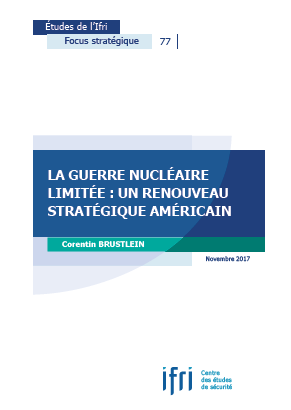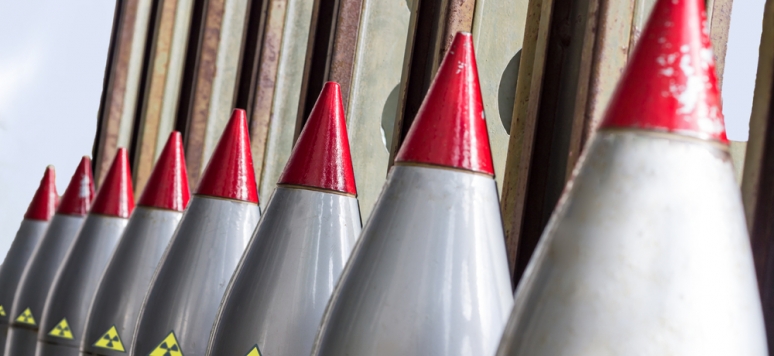La guerre nucléaire limitée : un renouveau stratégique américain

Over the past few years, a debate on possible scenarios of limited nuclear weapons use has surfaced again in the United States. Russian nuclear saber-rattling since 2014 and the growing tensions in the Korean peninsula have led Washington to reassess its own ability to deter, or respond to, such a limited use of nuclear weapons.

This issue, which is rooted in the history of the Cold War and the requirements of extended deterrence, has led the Obama administration to face both old and deep dilemmas: trying to conciliate the need for restraint during a crisis or a war with the uniquely devastating potential of nuclear weapons. The Obama administration, after having initially put forward an agenda in favor of nuclear disarmament, found itself forced to think of and plan possible forms of limited nuclear war, in a context of generalized strengthening of its deterrence posture. The international context, the state of American nuclear forces as well as the ideological and strategic preferences of the Trump administration seem to indicate that this shift towards a more robust and flexible posture will carry on, and might even accelerate in the next several years.
This content is available in French: La guerre nucléaire limitée : un renouveau stratégique américain.

Available in:
Regions and themes
ISBN / ISSN
Share
Related centers and programs
Discover our other research centers and programsFind out more
Discover all our analysesThe Franco-German Brigade and the Revival of European Defense
One thing has been clear since Donald Trump's return to the White House: the very existence of the European unification project is threatened. Unless it develops a sovereign defense policy to counter the war in Ukraine and the weakening of American security guarantees, the European Union will continue to see its internal cohesion and external attractiveness wane.
Taking the Pulse: Can Europeans Build Their Independent Extended Nuclear Deterrent?
Confronted with a U.S. disengagement and the Russian threat, Europeans are reconsidering their stance on nuclear deterrence. Given the capabilities of the French and British arsenals, can Europe develop an independent nuclear deterrent?

RAMSES 2024. A World to Be Remade
For its 42nd edition, RAMSES 2024 identifies three major challenges for 2024.
A Transatlantic Defense Industrial Base? Two Contrasting Views
The evolving landscape of global defense cooperation has brought the transatlantic relationship between the United States (US) and Europe into sharp focus. As geopolitical tensions rise and the threat environment becomes more complex, the question of how Europe can best ensure its security while navigating its relationship with the United States has become paramount. This double feature report offers two contrasting views on the dynamics of US-Europe defense industrial relations, highlighting the challenges and opportunities that lie ahead for both parties.









